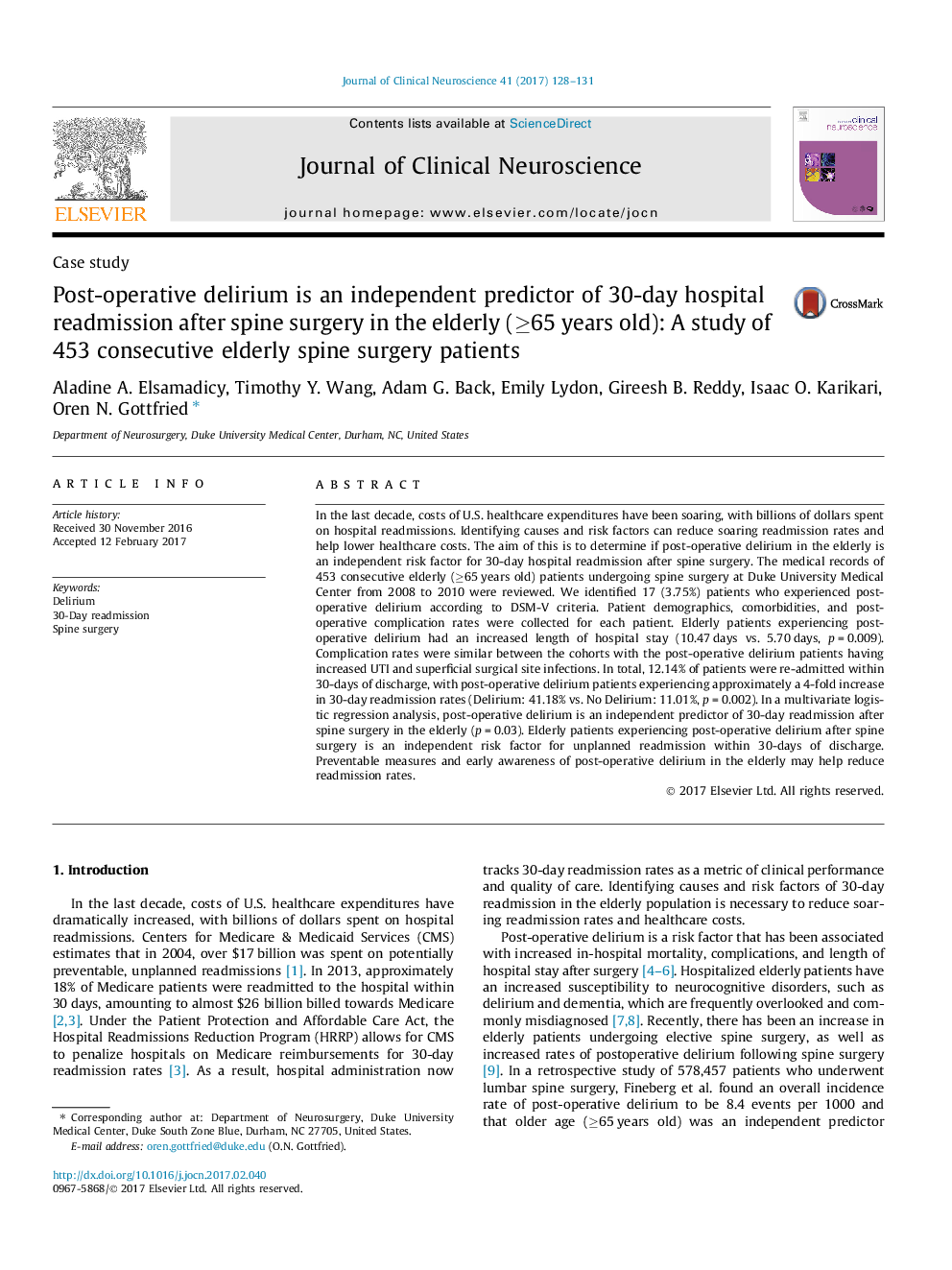| کد مقاله | کد نشریه | سال انتشار | مقاله انگلیسی | نسخه تمام متن |
|---|---|---|---|---|
| 5629607 | 1580275 | 2017 | 4 صفحه PDF | دانلود رایگان |
- 453 consecutive elderly (â¥65 y.o.) patients undergoing spine surgery were reviewed.
- 17 (3.75%) of patients experienced post-operative delirium.
- Post-op delirium patients experienced â¼4-fold increase in 30-day readmission rates.
- Post-op delirium was an independent predictor of 30-day readmission (p = 0.03).
- Early awareness of post-op delirium in the elderly may reduce readmission rates.
In the last decade, costs of U.S. healthcare expenditures have been soaring, with billions of dollars spent on hospital readmissions. Identifying causes and risk factors can reduce soaring readmission rates and help lower healthcare costs. The aim of this is to determine if post-operative delirium in the elderly is an independent risk factor for 30-day hospital readmission after spine surgery. The medical records of 453 consecutive elderly (â¥65 years old) patients undergoing spine surgery at Duke University Medical Center from 2008 to 2010 were reviewed. We identified 17 (3.75%) patients who experienced post-operative delirium according to DSM-V criteria. Patient demographics, comorbidities, and post-operative complication rates were collected for each patient. Elderly patients experiencing post-operative delirium had an increased length of hospital stay (10.47 days vs. 5.70 days, p = 0.009). Complication rates were similar between the cohorts with the post-operative delirium patients having increased UTI and superficial surgical site infections. In total, 12.14% of patients were re-admitted within 30-days of discharge, with post-operative delirium patients experiencing approximately a 4-fold increase in 30-day readmission rates (Delirium: 41.18% vs. No Delirium: 11.01%, p = 0.002). In a multivariate logistic regression analysis, post-operative delirium is an independent predictor of 30-day readmission after spine surgery in the elderly (p = 0.03). Elderly patients experiencing post-operative delirium after spine surgery is an independent risk factor for unplanned readmission within 30-days of discharge. Preventable measures and early awareness of post-operative delirium in the elderly may help reduce readmission rates.
Journal: Journal of Clinical Neuroscience - Volume 41, July 2017, Pages 128-131
